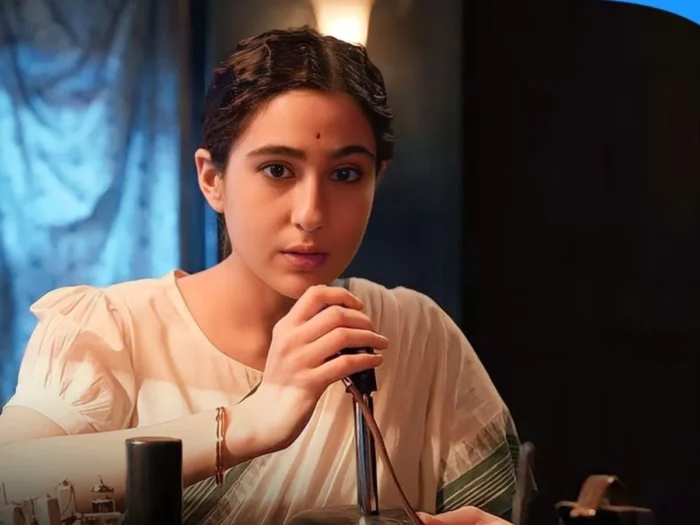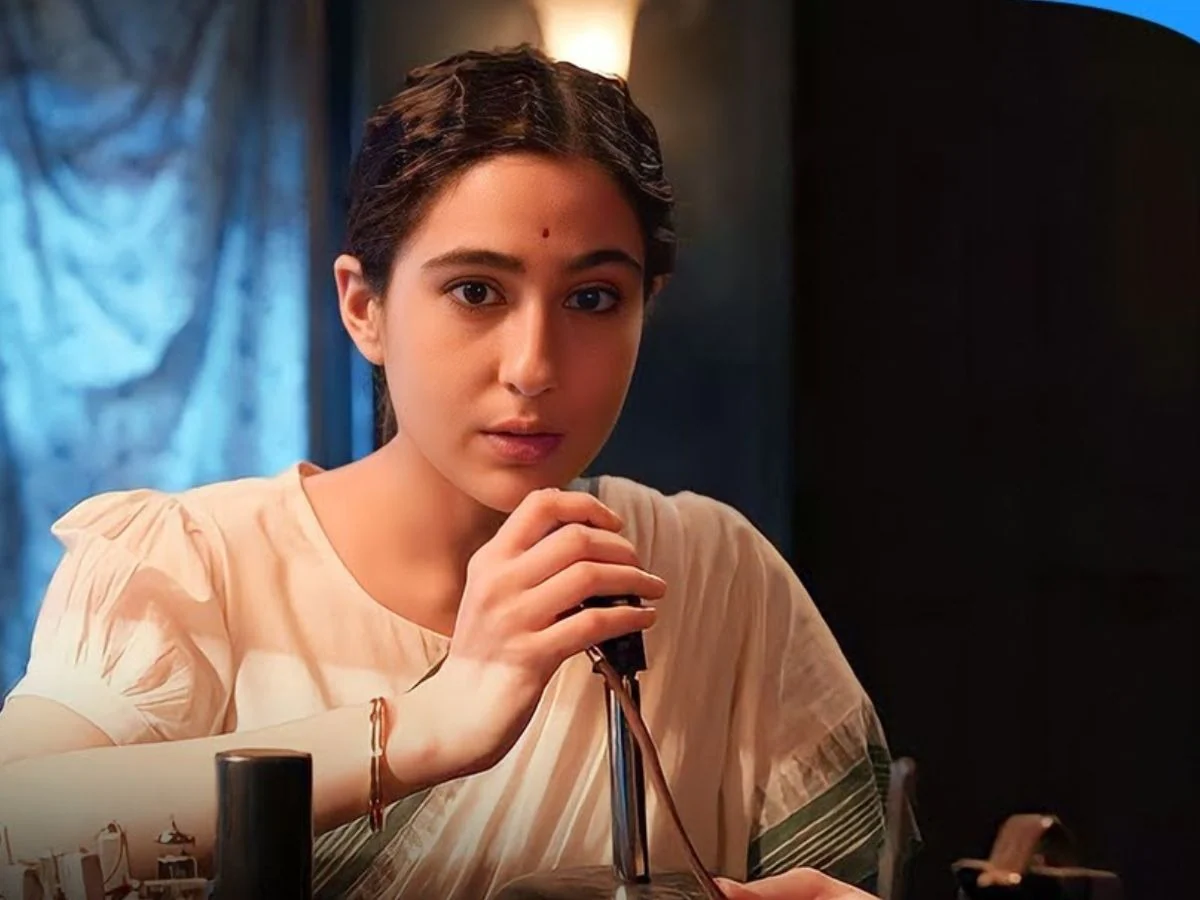Date of Release: 21 March, 2024
Genre: Biography, Drama, Historical
Language: Hindi
Where to Watch: Amazon Prime Video
Ae Watan Mere Watan Review
Ae Watan Mere Watan Review: “Ae Watan Mere Watan” remains a mystery in a film industry bursting at its seams with celluloid cries to the greatness of India’s richness in its past and its freedom movement; it was an anchored film to the hilt, therefore finding itself deeply embedded in a most heart-wrenching real story but struggling with an expressive tenor. Directed by Kanan Iyer, this film is based on the untold story of the heroes of the 1942 Quit India Movement, seen from the eyes of 18-year-old freedom fighter Usha Mehta, the pioneering brain behind Secret Congress Radio.
The Historical Backdrop: Congress Radio’s Role in Freedom Struggle
Usha, portrayed by Sara Ali Khan, is depicted from her childhood, engaging in her first protest at the tender age of eight, through to her adulthood as a fierce patriot who, at 22, had already dedicated her life to India’s independence. Despite the potential richness of her story and the profound impact of the Congress Radio in rallying forces across the nation under Gandhi’s “Do or Die” motto, “Ae Mere Watan Ke Ratan” falls short of doing justice to its extraordinary subject matter.

Usha Mehta: The Heart of Rebellion
The narrative begins in 1942, at the cusp of the Quit India movement, before retracing its steps back to 1930 to unveil Usha’s early passion for freedom. Her father, Hari Prasad Mehta, a judge under the British crown, vehemently opposes her anti-British sentiments, symbolically ‘caging’ her aspirations and desires for an independent India. This metaphor of Usha as a caged bird longing for the sky is a recurring theme throughout the film but is handled with a lackluster depth that fails to delve into the challenges imposed by her circumstances and gender.
Narrative Flaws: A Caged Story
As the film unfolds, we witness a group of friends, including Usha, making extraordinary sacrifices for their country. Usha’s decision to leave home and her vow of celibacy is portrayed as monumental, yet the screenplay skims through these life-altering choices without allowing the audience to fully comprehend their weight or the struggles entailed. The film’s pacing is erratic; it feels both rushed and dragged out, with characters that lack dimensionality and fail to resonate.
Character Portrayals: Between Sincerity and Surface
Sara Ali Khan’s portrayal of Usha Mehta is earnest, yet the script’s shortcomings and stilted dialogues prevent her performance from reaching its full potential. The emotional depth and complexity of Usha’s character remain unexplored, leaving much to be desired. In contrast, SP Sastav, playing Fahad, Usha’s compatriot, brings a modicum of gravitas to his role, delivering a performance that momentarily elevates the film, especially in scenes that hint at the sacrifices freedom fighters were willing to make.
The Dynamics of Sacrifice: An Unexplored Terrain
The latter half of the film attempts to inject suspense through a cat-and-mouse dynamic between the freedom fighters and the British authorities, led by the caricatured villain Inspector John Liar. However, the execution lacks the tension and urgency required to engage viewers, further diminished by the over-the-top portrayal of British officials, which verges on comical rather than menacing.
Antagonists and Tension: Missed Marks
“Ae Mere Watan Ke Ratan” had the ingredients for a compelling cinematic tribute to an unsung hero and a pivotal moment in India’s fight for freedom. Yet, it veers off course, delivering a history lesson that feels too polished and devoid of the raw emotion and complexity inherent to its true story. Available for viewing on Amazon Prime Video, the film represents a missed opportunity to truly honor Usha Mehta’s legacy and the indomitable spirit of India’s freedom fighters.
Conclusion: A Tribute Unfulfilled
In a surprising twist, the review ends with a giveaway tied to a trivia question linking Sara Ali Khan’s role in “Ae Mere Watan Ke Ratan” to another historical film, encouraging viewers to engage deeper with India’s cinematic portrayals of its rich history.




